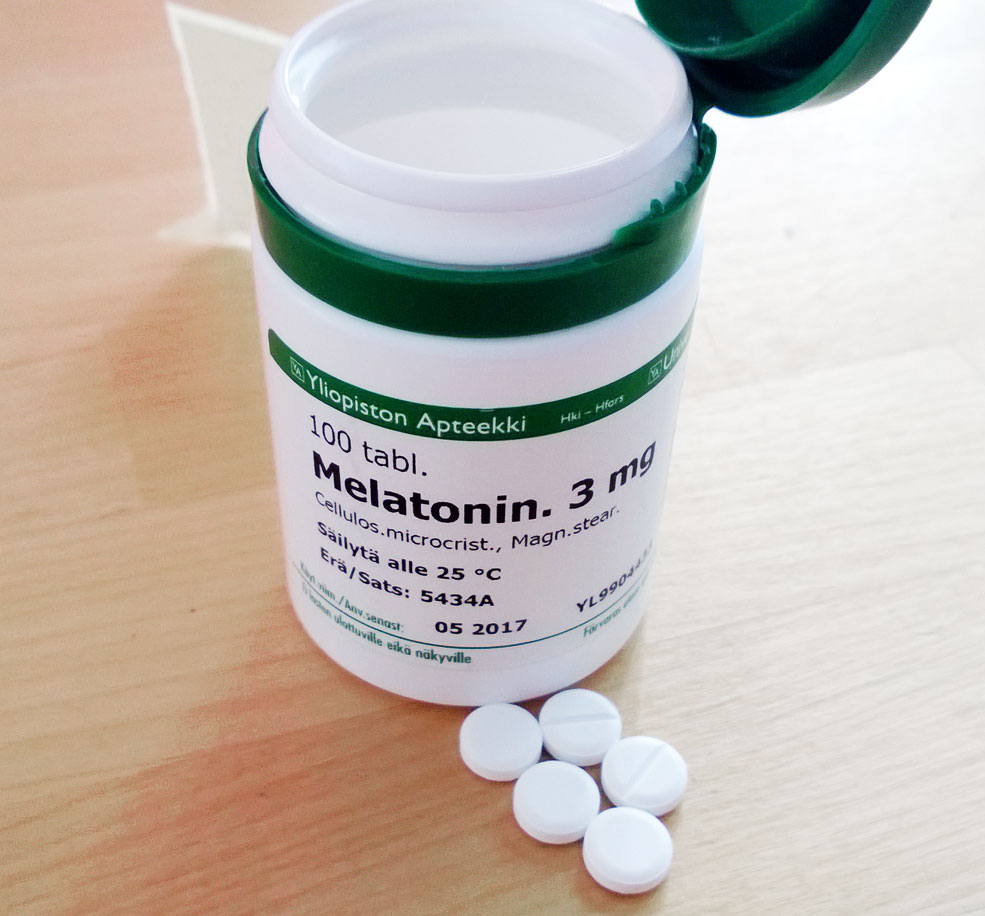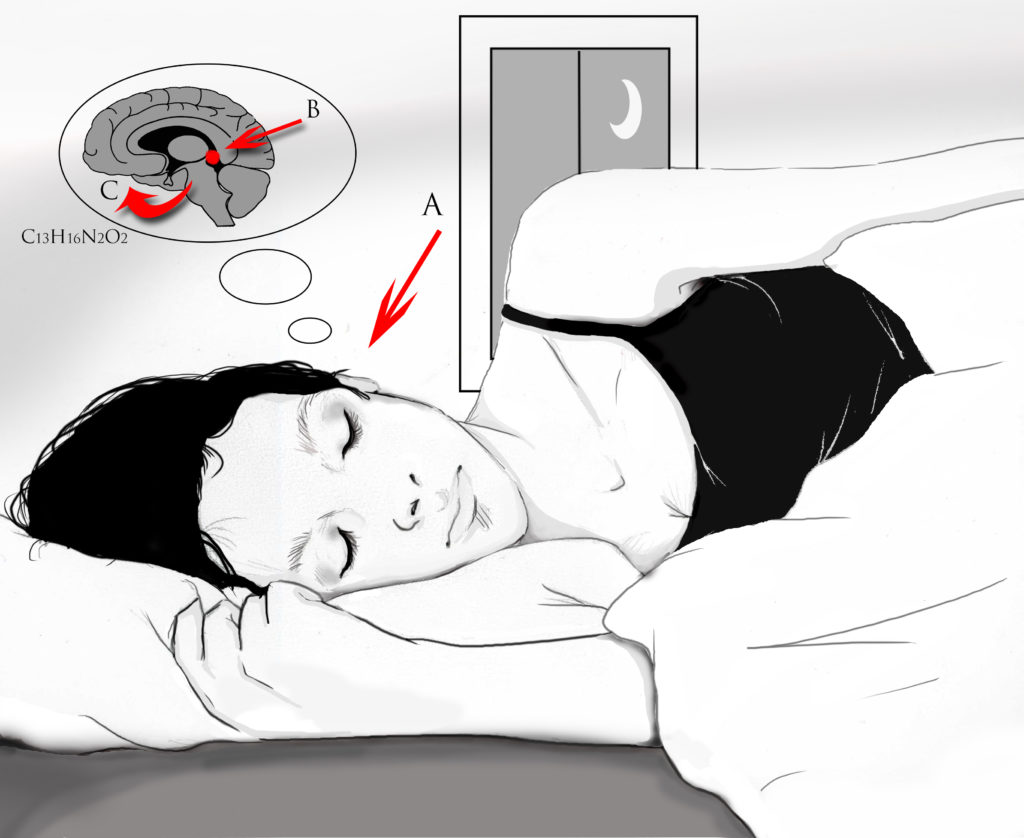Summary
– Sleep hormone (melatonin): what is it?
– Sleep: the other hormones involved
– A few tips for a peaceful sleep
– Melatonin recommendations
Sleep disorders can be multi-factorial but strongly related to the concentration of one or more hormones in our body. Melatonin, estrogen, insulin: what is the role of these substances on our sleep? Get all the answers in this post.
Sleep hormone: what is it?
If most people tend to be awake during the day and fall asleep at nightfall, it is not by chance; a hormone produced by our body, melatonin, is responsible for our sleepiness.
Melatonin works like this:

– it is produced by the pineal gland (or epiphysis in the center of the brain);
– it is released in the absence of light as soon as night falls to facilitate falling asleep;
– its secretion peaks between 2 and 4 a.m. and then declines in the second half of the night to prepare for waking.
Good to know: according to a study carried out in 2011, the blue light emitted by screens (television, computer, telephone, etc.) inhibits the production of melatonin and makes falling asleep more difficult. Conversely, red lights are the least likely to interfere with melatonin production and disrupt circadian rhythms. Exposure to a red light is therefore strongly recommended before bedtime.
Sleep: other hormones at play
In addition to melatonin, other hormones may be involved in the identification of sleep disorders:
– Insulin: by overeating sugar, especially in the evening, our insulin level increases to lower our blood sugar. This can lead to “glycemic stress” in the blood vessels. In response, the body produces more cortisol and adrenaline (the stress hormones), increasing cellular inflammation, especially in the brain, and causing insomnia.
– Estrogen: Reduced estrogen levels, especially during menopause, are responsible for hot flashes and night sweats that interrupt the normal sleep cycle and lead to sleep disturbances in women (especially after 50).
– Progesterone: known as a hormone that induces relaxation and sleeps; if its level decreases in the body, it can significantly affect sleep, and a woman begins to experience difficulty falling asleep.
Note: During pregnancy, the body produces more progesterone to promote the mother’s sleep.
Good to know: It is important to remember that towards the end of the menstrual cycle, there is a drop in hormones in the woman’s body, which coincides with the onset of menstruation. During menstruation, women may experience sleep deprivation and sleep disturbances due to the decrease in hormone levels.
Some tips for a peaceful sleep
It is advisable to follow a few rules to minimize the impact of the hormones responsible for sleep disorders:
– Adhere to a regular sleep schedule as much as possible by trying to go to bed and get up at the same time every day. Melatonin levels begin to rise about two hours before bedtime. Thus, by respecting strict sleep schedules, your body will regulate the secretion of melatonin better.
– There are melatonin supplements that can be prescribed for people over 55 years of age (as older people are often deficient in melatonin production) and people with staggering work rhythms, jet-lag, or impaired vision. Talk to your doctor.
– However, although melanin supplements help people fall asleep, they do not promote deep sleep and do not regulate sleep during the night.
Melatonin recommendations
It is not recommended to consume food supplements based on melatonin to pregnant or breastfeeding women, children and adolescents, and people suffering from inflammatory or autoimmune diseases. People with epilepsy, asthma, mood, behavior, or personality disorders should seek medical advice before taking them.
Besides, there are interactions between melatonin and certain medications. This is why it is preferable to “favor simple formulations that do not combine melatonin with other ingredients and avoid taking several food supplements at the same time, to limit the risk of interactions.” You can benefit by taking a dose of about 1 mg half an hour before bedtime.
If persistent sleep disorders without any psychological cause are found, do not hesitate to consult your doctor or specialist.



Pingback: Hello sites